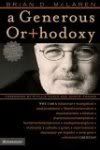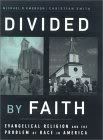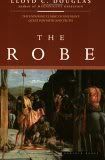 Before I get to the book itself, I wanted to let y'all know what I'm thinking as far as a structure for going through it. Since it is a pretty accessible little volume, with mostly short chapters, in lieu of doing 1 a week (20 weeks seems like overkill on this one) we can do it this way: All of the stuff that precedes Chapter 1 this week, next week do Part 1, then do it in blocks of chapters 5-10, 11-15, and 16-20. That puts us at +/- 50 pages a week. Too much? I don't want to rush through it, but I also don't want to drag it out. Please let me know what y'all think, if you want to break it down more or do it every other week instead of every week. I'm open.
Before I get to the book itself, I wanted to let y'all know what I'm thinking as far as a structure for going through it. Since it is a pretty accessible little volume, with mostly short chapters, in lieu of doing 1 a week (20 weeks seems like overkill on this one) we can do it this way: All of the stuff that precedes Chapter 1 this week, next week do Part 1, then do it in blocks of chapters 5-10, 11-15, and 16-20. That puts us at +/- 50 pages a week. Too much? I don't want to rush through it, but I also don't want to drag it out. Please let me know what y'all think, if you want to break it down more or do it every other week instead of every week. I'm open.
Now, on to the book....
I guess my first comment would be on his writing style. I have to say I don't love it. It seems too apologetic and self-effacing while at the same time almost cocky. But then, he anticipates the criticism and criticizes himself (see last full paragraph, p. 38), making actual critique difficult without feeling as though you've inadvertently stepped into one of the boxes he's already identified as containing "orthodox watchdogs" (p. 37) or some other such folks that you know you don't want to be affiliated with. I find myself distrustful of the content because of the style, even though I don't take huge issue with the content itself to date. But granted, I've not even reached Chapter 1 yet. And the way he's presented himself makes moving into Chapter 1 almost like the result of a childish dare: "Oooh, I'm so subversive. Are you sure you want to read on? It's scary out there, so only keep going if you're super open minded. You've been forewarned...." Okay, that's probably too harsh, and I know tons of people who love his style, but that's just my own gut reaction out of the gate.
Getting out of the tone zone and into content, a few observations:
I love Leonard Sweet's image of the swing for the idea of ancient-future spirituality, with the "simultaneous kicking-back/leaning-forward, kicking-forward/leaning-back." (p. 18) Without both, there is no movement, and spirituality would be a dead, static thing instead of the dynamic, living reality that it is. I find it true on a personal level as well, as I have to embrace (though not always love) my own past and learn from it in order to move forward in a healthy way. Not cling to it and wallow in shame, but at bare minimum acknowledge it and claim it as my own, taking responsibility for things good and bad, allowing God to redeem and restore my whole life.
I appreciate the way that McLaren links orthodoxy and orthopraxy. It seems so obvious, but is so often overlooked. (See James 1:22-25 among a whole slew of other passages) At first glance, though, I may want to add a bit to his definition of orthodoxy as "what God knows, some of which we believe a little, some of which they believe a little, and about which we all have a whole lot to learn." (p. 28) I would want to add: "Some of which God revealed and gave us to know". He affirms scripture, the creeds (Apostles' & Nicene) and doctrine as important, but I still am left feeling as though, despite his assurances that the book doesn't "[pitch] its tent in the valley of relativism" (p. 35), there is a lack of trust in capital-T Truth. I completely affirm his obvious desire to establish dialogue and approach one another - both within various branches of Christianity as well as those in other faiths - with love and a posture of learning, but at the same time, I want to maintain the right to talk about true and false in a more definite sense, not necessarily couched with tons of disclaimers that usually end in 'for me'. I don't particularly consider myself a black and white hard-liner. I'm fairly cognizant of all the grays, and am steeped in a theology that breathes 'tension'. And yet....
Finally, I want to quote and quote again his statement that "the Holy Spirit stubbornly refuses to abandon the church even when the church quenches the Spirit" (p. 30). There is so much angst and division in the body of Christ, and it's a tragedy of epic proportions. Instead of fighting for justice, love, and mercy in a fallen world, we're often reduced to fighting one another. I wouldn't want to quell the voices calling for change (see my previous post) - I mean, read the prophets. Not exactly warm and fuzzy towards their own religion. But as important as the critique is, we also need to look for points of contact. Thank God (quite literally) that His Spirit doesn't wait to move until we've got it right. We've not been abandoned, no matter how hopeless it looks or how crappy our experience with church and Christians has been. One of my favorite things about the Bible is all of the stories of God moving in and using terribly, utterly, tragically flawed people. Like me. And you.
Sorry if I just got preachy....
Okay, that's all I've got for now. Let's get this discussion rolling!










9 comments:
Jasie,
Thanks for these helpful first insights into McLaren's book.
Strange how someone who is always critiquing themselves makes it hard for anyone else to make an actual critique that sticks. Auto critique tends to put the critiquing other in categories that may silence them.
McLaren's linking orthodoxy and orthopraxy is so needed in today's context where there is all too often a disconnect between saying and doing. I like your re-touching of his definition of orthodoxy. And, I think, it's important that there is both truth and truth for me - yes, the tension.
Speaking of auto-critique - I don't think you were being preachy at the end - and even if you were, would there be something wrong with that?
Glad you didn't find it preachy. And would there be something wrong with it if it were? I don't know... I feel ill-qualified to stand on soapboxes, but you're right that it shouldn't cause a person to cease to speak. Or maybe our passions make us too vulnerable, so we distance ourselves a bit by an apology or caveat thrown in for good measure. Maybe that is some of what is happening in McLaren's Chapter 0. Although a chapter devoted to disclaimer still seems like a bit much to me.
What did everyone else think of his style?
Hi. I'm a random stranger who's come to post on your blog.
Well, not exactly. I'm one of April's co-workers who talks with/harasses her on a daily basis. She told me about the book and about the blog and said I should post if I wanted, and so here I am. I'll be representing an agnostic voice, since I was raised Christian, but no longer consider myself to be one. But don't worry, I promise to not bite off anyone's head about religion or anything else in the discussion. Actually, I'm not sure how much I'll be posting at all. My role is probably that of a scientific onlooker looking in on an evolving phenomenon within Christianity from the outside.
Ok, that's the end of my short intro. Now, about the book itself. The author's tone struck me the wrong way, too. I mean there's modesty and self-deprecation, and then there's going overboard into the realm of self-loathing, which I've got to say McLaren does more than once. To quote McLauren himself, "...I confess I just reread this Chapter 0, and it strikes me as so weird - arrogant? defensive? tortured? complex? anxious?..." Ah, yep, yep, yep, yep, yep, and yep. And that's why we have things called editors and 4th drafts. But you've pretty much covered all this already, so I'll move on.
I've got a bigger problem with McLaren's pet term "generous orthodoxy" though. Quoting the author himself again, "Many will agree: the choice of the word orthodoxy in the title is a terrible mistake." Yes, I do think that that was a mistake. It seems to me that McLaren is more interested in creating his own arbitrary definitions for what the term orthodoxy means and then defending his decision to do so instead of just picking something a little less cute for his title. How can orthodoxy, which by established definition implicitly contains the ideas of exclusivity, separation, and being closed to outsiders, be said to somehow be able to generously embrace a whole field of distinctive Christian (and non-Christian?) ideas and practices?
There were flashes of insight scattered here and there that I liked. His general acknowledgement that there are serious problems within Christianity that need to be addressed. The fact that he is restless with the status quo within churches. The way that he disapproves of Christian groups settling into self-satisfied little nooks of their own creation and proclaiming their own narrow realm the one and only truth.
Trying not to write entirely too much here (sorry if this is too long), after reading the intro stuff, I guess I was left in a state of confusion. What exactly is the thrust, the purpose, the aim of A Generous Orthodoxy? McLaren calls it a "confession." Does that mean that it is primarily an outlet of one frustrated Christian getting everything off his chest? Can McLaren somehow find or create commonality between Christians across the denominational and conservative/liberal spectrum? Is that even what he's interested in doing. And if not, what is he up to?
Guess we'll have to wait and see.
~ David
Hey David!
Glad someone's around to give April a hard time. I suspect she holds her own, though, knowing her.
I've been thinking about your comment about orthodoxy. I checked dictionary.com, and there are lots of definitions that would reinforce the idea of exclusivity, conformity, etc. And I think you're absolutely right that Christianity has traditionally been known as a less than inclusive/open faith. You don't have to look far at all to find some pretty heinous and tragic examples of how that has manifested itself. But I guess my question would be: what are we conforming to? It seems like the object of our orthodoxy is of primary importance. Put another way: if the belief system/doctrines that we accede to are themselves inclusive, then could conformity/orthodoxy then be inclusive rather than exclusive? Or, to use McLaren's verbage, could we have a truly generous orthodoxy? I don't think we'll ever get it perfect, but I'm hopeful that we'll get closer.
As far as your confusion, I'm with you. I didn't feel as though he said a whole lot during the opening matter, so I'm curious to see where he goes with it all.
Thanks for your comments - I hope you keep 'em coming! And tell April to get on here with her 2 cents...
Okay, here I post! I don't have the book in front of me so I can't quote from it...but no fear there because I didn't have anything profound to say. I pretty much agree with everything that has already been said.
I really did not like his Chapter 0. I thought he went overboard in his apology. By the time I reached the end I felt like I was triple-dog-dared to do something really stupid. And I was a little concerned that the rest of the book would follow suit.
I did read Chapter 1 already and I think it will serve for a better discussion (in my opinion).
I appreciate a fair warning if someone is about to zing me with something completely off the wall. But McLaren, by apologizing and criticizing himself to pieces made me really not want to respect him. I mean, if you don't believe at least a little bit in the things you are saying...then why are you saying them? Don't pretend to not care! Why would you invest your time and money into writing a book?
It's like he is so heavily anticipating criticism that he says, "Here...let me just stone myself...you don't even have to bother attacking me, I'll just kill myself now."
I guess I wonder WHY? he feels such a strong need to preface his book with a chapter like this. Is he so fed up with controversy that he just wants to take care of it before hand? Is he giving a more than thorough overview and warning just so he can say "I told you so" to every person who tries to argue?
On that note, I felt like his apology made him completely unapproachable. Like if I had any question whatsoever about what he had written, his response would not be to listen to me, but rather to say "Didn't you read my Chapter 0?"
I actually really do like what he has to say. I think I'm really going to like the book (I've only read Chapter 1). I guess I was just annoyed with this whole warning, and I found it kind of foolish and confusing to read pages and pages of the author saying "This is the stupidest book ever written."
Well, that's what I have to say.
I'm really looking forward to more conversation. I'd like to think a little more about what Jasie said in the initial blog post. Discussion on orthodoxy vs. orthopraxy is a good point.
Love to you all!
Where's the rest of the club? Speak up people!
I'm with April, I don't have anything new to add, other than to affirm that this chapter could have easily been omitted without any great loss.
So basically I am writing to tell Jasie that, yes, I am here and am reading. I will chime in if/when I have something to say which has not already been stated. (Ok, nobody reread the first paragraph or you may end up questioning my logic; but I admit my logic is screwy; consider yourself warned: now to chapter 1)
Jasie,
I'll try this again!
Am I the only one who recognized themselves in this chapter? I suddenly realized that I am the queen of disclaimers! I reallly must stop apologizing for myself in advance and trying to lower other people's expectations of me ,because when I saw it in print I realized it's not that attractive a quality and many times it's more self-serving (you've stolen the other person's ammunition before they can use it on you) than humble.
Now on to the book. I'm really curious to see how far he takes this "generous otrthodoxy".As part of the "conservative Protestant faction" my first response was to feel a little bit protective and defensive because my experience with Christ and the church has been such a grace-filled, positive one. I've seen and felt the Body of Christ working with the unity and humility and love and support that God had in mind. Granted, we're all very imperfect people and fail in some small and large ways,but our heart is to please God and bring him glory and to serve others and to ask forgiveness when we screw up.But I'm not blind to the fact that the "church",historically and personally,has hurt
God's cause and turned people away from him rather than towards him.I think a lot of that stems from orthodoxy gone wild-some many 'human traditions" (Col. 3) that just strangle the life and love and passion right out of you and distract you from the heart of the Gospel and the peace and joy and simplicity that comes from following the example that Christ lived out for us. Or orthopraxy gone amuck which is equally destructive-when your feelings beome your touchstone instead of Truth and the source of that Truth ,you probably will just end up worshipping yourself and becoming easy prey for all sorts of false and destructive thinking (see 2 Timothy 3-4 and 2 Peter 2-does this look familiar to anyone-T.D. Jakes,etc. etc....?) I think in this, as in all things,balance is the key and I think there's a good reason Christ put the two most important commandments in the order he did. One flows naturally into the other (trying the second without the first just usually doesn't work.
Back to my original point which I somehow lost, I just hope he doesn't get so inclusive that real truth becomes meaningless. I think focusing on the majors ( God as our Creator and ultimate authority and Jesus as Savior) and not on the minors (personal preferences, cultural differences,traditions,etc.) will bring a lot more harmony and make God and the church much more effective and winsome and what God intended it to be.
I especially liked his description of identifying orthodoxy with the consistent practice of humility,charity,courage, and diligence. Can't go wrong with that!
Love you guys and love reading your thoughts. Look forward to next week. Thanks, Jasie, for taking the time and initiative to do this and include us!
Mom
First let me say how much I have enjoyed the posts I have read so far… I am happy to share my thoughts and look forward to many great discussions…
Chapter 0:
In the chapter whose necessity has been called into question, McLaren's definition of orthodoxy immediately gave me the impression that he is determined to transcend all those difficult but important questions of truth and overrule "straight thinking" or "right opinion"… McLaren states, “The last thing I want is to get into nauseating arguments about why this or that form of theology (dispensational, covenant, charismatic, whatever) or methodology (cell church, megachurch, liturgical church, seeker church, blah, blah, blah) is right (meaning approaching or achieving timeless technical perfection)." I thought then why didn't you name your book, “A Generous Heterodoxy.” But instead I decided to hear him out and continued reading. He claims to uphold "consistently, unequivocally, and unapologetically" the historic creeds of the church, specifically the Apostles' and Nicene Creeds. I am more than curious to see if McLaren can do this in light of the relativistic web he has already begun to weave. My fear is that McLaren’s subtle hints of relativism will come at the cost of clarity in matters of truth. This concern of mine stems partially from McLaren warning us ahead of time that he will be "provocative, mischievous, and unclear..." by the way, when did this become an attractive boast from a writer?
I eagerly anticipate the next chapters…
Mom,
I really appreciate your perspective, and am glad to have a less cynical voice in the crowd. I’m going to have to quote you on ‘orthodoxy gone wild’ – I won’t even share the mental image that conjures. Your point about simplicity is well taken… one of my favorite quotes from the book is that he is looking for a “new simplicity on the far side of complexity.” Simple, but never easy.
Anna,
Welcome! I’m curious as well to see how he maintains focus in his ‘relativistic web’. I’ve appreciated some of the clarifications I’ve already seen in the first few chapters, but it does seem as though he’s walking a really fine line…
Post a Comment